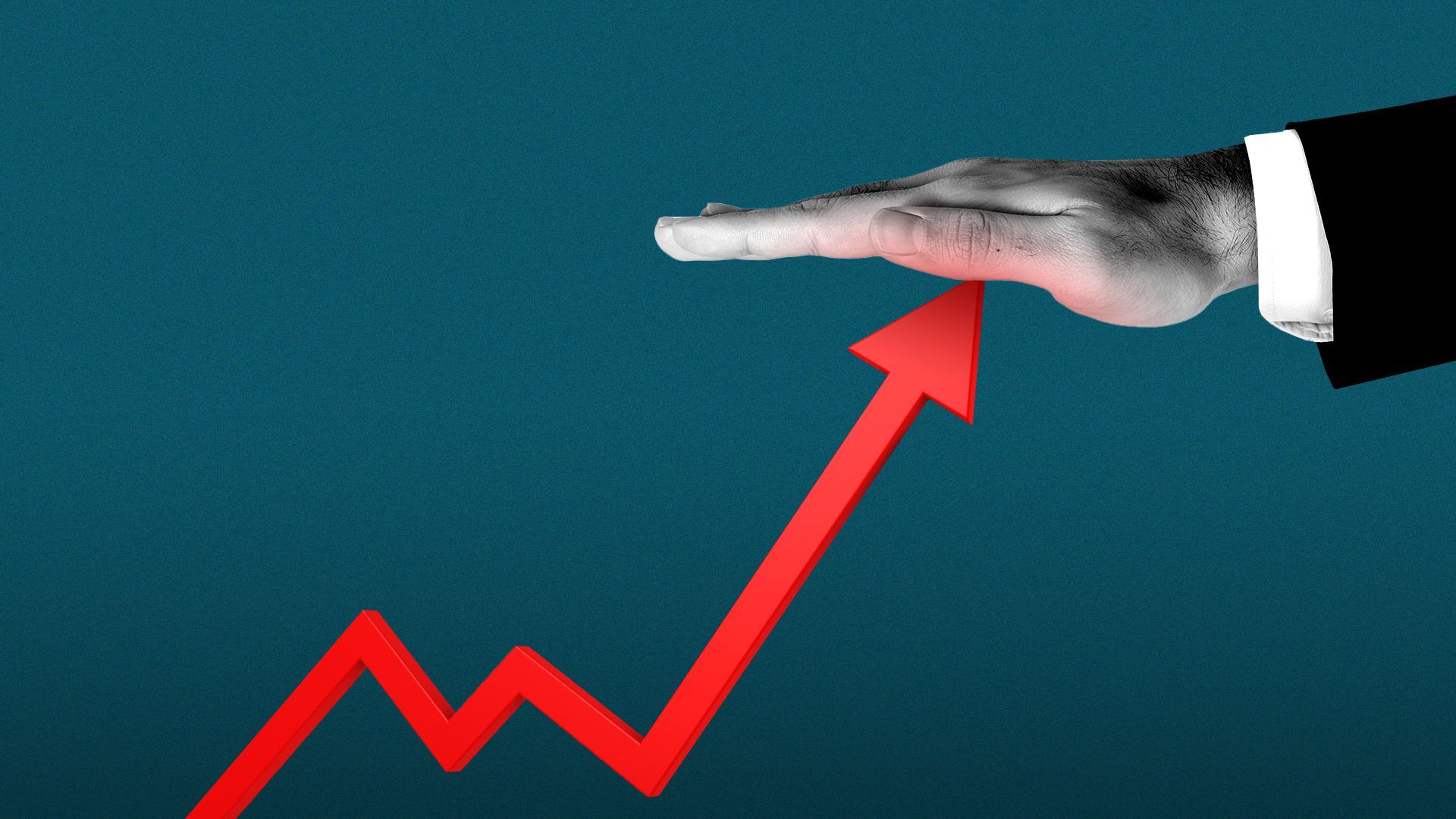Inflation turns Biden's Fed decision upside down
Add Axios as your preferred source to
see more of our stories on Google.

Illustration: Annelise Capossela/Axios
Joe Biden could be the first president since Jimmy Carter who wants to make the Federal Reserve more hawkish.
Why it matters: Standard political calculus has been turned upside down this year, as the Democrats start preparing for what is certain to be a bruising 2022 midterm campaign. Instead of trying to maximize economic growth and full employment, their new priority is to ensure that inflation comes down as quickly as possible.
The big picture: Inflation was not caused by the Democrats — it was caused by the coronavirus pandemic, which precipitated both global supply-chain disruptions and a huge fiscal response, mostly from the Trump administration.
- The spike in inflation has happened on Biden's watch, however. As per the (arguably unfair) rules of the political game, that means it's his problem: Voters will blame him for inflation if it stays high.
- Biden's latest spending bills won't move the needle on inflation one way or the other. Neither will strongly-worded letters about gas prices. Instead, Biden's main point of leverage comes from his ability to nominate members — and the chair — of the Fed board.
What they're saying: "The Fed chair has practically unilateral power over monetary policy, and at this point monetary policy is really the only thing our government can do to affect inflation," says economist Noah Smith. (While there are 12 voting members on the Federal Open Market Committee, the preference of the Fed chair has in practice always been respected.)
Between the lines: Besides the Fed chair, there is one seat vacant on the seven-member board of governors already, with two about to become vacant as Richard Clarida and Randal Quarles are both leaving the board around the end of the year. On top of that, if Powell isn't renominated as Fed chair, his seat will be vacant too.
- Biden will certainly want a more diverse Fed board, and one that cares more than the current quorum does about bank regulation and global warming. None of that will stop him from preferring hawks to doves.
Be smart: Current central bank orthodoxy is decidedly dovish. Most central bankers — including both of the front-runners for the Fed chair position — are more likely to welcome the return of inflation than they are to fear it. Then again, central bankers don't need to run for elected office.
The bottom line: As Solita Marcelli of UBS says: "It is very common for politicians to prefer central bankers who promote economic growth by keeping monetary policy loose. However, under current circumstances, that strategy could be counterproductive for President Biden."
